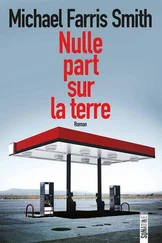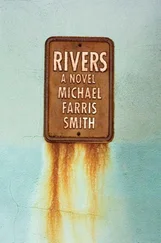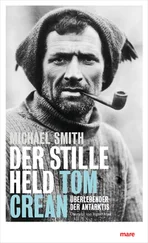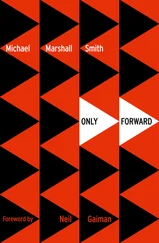It was what Marcia had suspected - an organised dog fight.
‘Eddie!’ shouted William. ‘What on earth are you doing?’
Eddie spun round to face his father, staring at him speechlessly.
‘What does it look like, mate?’ shouted the thick-set man. ‘This is private business, innit? Get lost.’
The bull terrier looked briefly at William and snarled. This was Diesel.
‘I said get lost!’ shouted Diesel’s owner again. ‘Or shut up and watch.’
Stevie was busy with Freddie’s leash and collar, while Freddie stared in dread at Diesel and growled defensively.
‘Eddie!’ cried William again.
‘Go back to the pub,’ Eddie said. ‘We’ll come and see you later. We’re having some private fun.’
‘Fun!’ exclaimed William.
Stevie chose to intervene. ‘Yeah, fun, Mr French,’ he said. ‘A bit of innocent fun.’
‘This is preposterous,’ said William. ‘That’s my dog, for a start.’
‘Listen, mate,’ shouted the other man, ‘Diesel here is getting very irritated with you. So just shut your cake-hole . . .’
‘Come on, Dad,’ said Eddie. ‘This is just a bit of fun. Where’s your sense of humour?’
Poosie now looked at William. ‘Yes, don’t be so old!’
‘Old!’ exploded William. ‘Who’s old?’
‘You,’ said Poosie. ‘You’re acting seriously old.’
‘Tart,’ said Marcia.
Diesel now took a few steps forward. He was an extremely muscular dog and he walked a little as a drunken sailor might walk - swaying slightly from side to side. William looked in alarm at Freddie de la Hay, who had now been released by Stevie. ‘Chew him up, Freddie boy,’ said Stevie. ‘Go for the jugular.’
In a moment of great clarity, William realised that anybody who got between the dogs would be in danger of being badly mauled - not by Freddie, of course, but by the mesomorphic Diesel. Yet he was in no doubt that if he did not intervene, this would be the end of Freddie de la Hay. Valiant though Freddie undoubtedly was, he would be no match for the steroid-fed Diesel, the worst sort of dog in terms of attitude.
William took a deep breath. Then, directing himself towards Diesel, he shouted in as stern a voice as he could manage, ‘Diesel!’
Diesel hesitated and looked towards William.
‘Diesel!’ William continued in stentorian tones. ‘Diesel, sit! Sit!’
For a moment Diesel looked confused, and then sat down firmly. He was well trained, like a Royal Marine, and when told to sit, he sat.
Diesel’s owner looked on in astonishment while William stepped firmly forward and snatched Freddie de la Hay’s leash from Stevie’s hand. Attaching it quickly to Freddie’s collar, he led the relieved dog back to Marcia, took her by the arm and walked at a fast pace down the passage.
Eddie shouted out something, as did Diesel’s owner, but neither William nor Marcia heard what it was, nor bothered to listen.
‘Chutzpah!’ said Marcia as they turned onto the lane. ‘William, you’re brilliant!’
‘Oh, I don’t know,’ said William. ‘It seemed the obvious thing to do.’ He spoke casually but inside he was shaking with a mixture of relief, fear and sheer astonishment at his own performance. It could have ended quite differently, he thought. What if Diesel had ignored him or possibly not understood the way he spoke? Freddie could be dead by now if that had happened.
They went back to the van and Freddie de la Hay hopped into the back while William sat in the passenger seat, wiped his brow with his handkerchief and closed his eyes. Marcia could detect a state of shock when she saw it, and she held William’s hand gently before she started the engine.
‘We’ll go home and have a nice dinner,’ she said. ‘I’ve got some scallops. And we’ll give Freddie de la Hay a steak.’
William opened his eyes. ‘He’s a vegetarian,’ he said. ‘Remember?’
‘Was,’ said Marcia.
70. At the Ragg Porter Agency
That Monday was not proving to be a particularly busy day at the Ragg Porter Literary Agency, and the three directors - Barbara (non-fiction), Sheila Stevens (films and other media) and Rupert Porter (fiction) - had taken the opportunity to have their quarterly planning meeting somewhat in advance of its normal date. The agency was doing well, having recently taken over the administration of the estate of a deceased novelist who had suddenly - and posthumously - become immensely successful. They were now looking at the list of their existing authors with a view to guessing which of them might be expected to die in the short rather than the long term, and which of these might enjoy a sudden burst of posthumous popularity.
‘It seems such a pity that some people have to pass on in order to be widely read,’ said Sheila.

Barbara winced. ‘For heaven’s sake don’t use that term,’ she said. ‘Passing on! What a euphemism. Call it what it is. You die when you die, you don’t pass on. Where do you pass on to, may I ask?’
Rupert came to his colleague’s defence. ‘Oh, I don’t know,’ he said. ‘Passing on sounds very reassuring. Rather stately, in fact. And who knows where we go after this mortal vale? My housemaster at Uppingham used to talk about the Elysian Fields as if they really existed. I think he may have believed in them. Probably did.’
Barbara gave him a glance. They heard a great deal from Rupert about Uppingham.
‘Well, that’s very nice,’ she said.
Rupert did not pick up her sarcasm. ‘Yes, indeed it was. He used to give us little talks and, do you know, everybody listened. Even the chaps who were not very academic. They sat there and listened. He explained that the Elysian Fields were probably restricted to those connected with the gods in some way; ordinary people had to go to the Fields of Asphodel, if I remember correctly. Not quite so comfortable.’
‘Like standard class on the trains,’ suggested Sheila.
Rupert nodded. ‘Yes, I suppose so. That’s quite a good analogy, in fact. Indeed, one might expand it and apply it to Christian notions of the afterlife. First class would be heaven, while standard class would be hell, or purgatory.’
‘That depends on the line,’ said Sheila. ‘Some lines are all right, the others, well . . . Why do we tolerate it? Why do we tolerate having the worst train service in western Europe? And one of the most expensive ones in the whole world?’
‘Because we privatised the railways,’ Barbara said. ‘The French and the Germans warned us. They said: “It’s not going to work.” And we ignored them, and look at us now. Dirty trains. Not enough seats. Nowhere to put your luggage. When you get into the train in France, for example, there’s always bags of room to stow your suitcase. They assume, you see, that people are going to travel with a suitcase. Radical assumption!’
‘So what are we going to do about it?’ asked Rupert.
They looked at one another. ‘Well, frankly,’ said Barbara, ‘I don’t see that there’s much that Ragg Porter can do about it. So I suggest that we get on with our meeting.’
‘All right,’ said Rupert. And then, with the air of one who had just remembered something, ‘Oh, I took a call for you, Barbara, while you were out for lunch.’
‘Yes?’
‘Yes,’ said Rupert. ‘It was a journalist. I noted his number down somewhere. He wanted to know about that Greatorex manuscript of yours.’
Rupert now had Barbara’s full attention. ‘Greatorex?’ How had the press got to hear of this?
‘Yes. That’s the yeti biography, isn’t it?’ said Rupert. ‘Not that I believe it for one moment. At Uppingham we had a chap who had climbed quite a few of those mountains in Nepal. He said that the yeti was complete nonsense.’
Читать дальше











